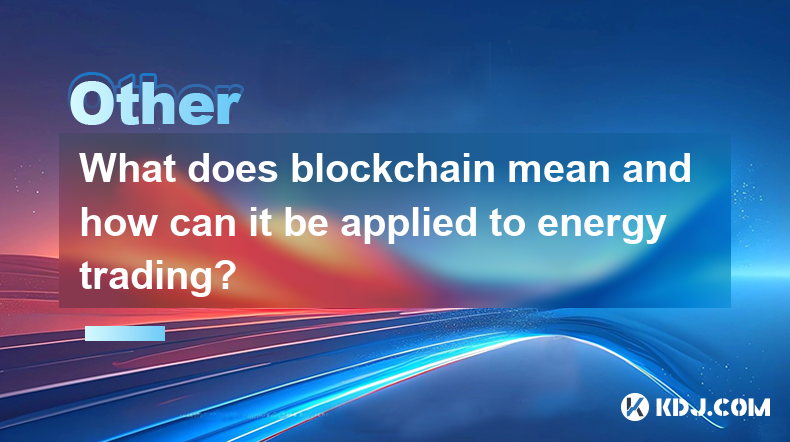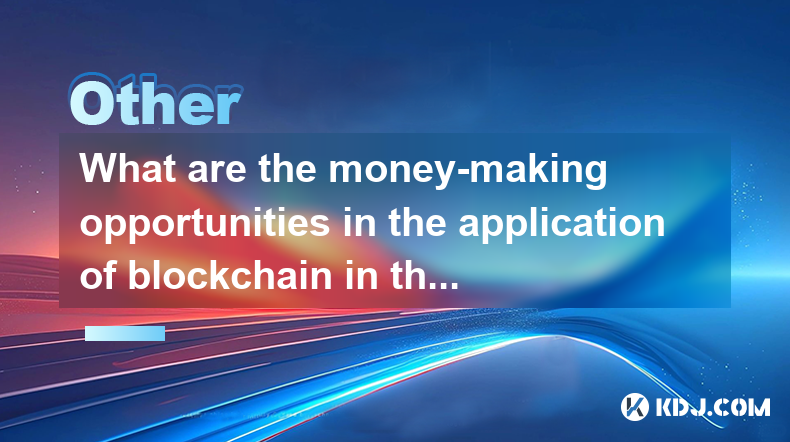-
 Bitcoin
Bitcoin $77,174.4332
-6.66% -
 Ethereum
Ethereum $1,513.9694
-15.12% -
 Tether USDt
Tether USDt $0.9994
0.00% -
 XRP
XRP $1.7976
-13.35% -
 BNB
BNB $546.9143
-6.92% -
 USDC
USDC $1.0000
0.01% -
 Solana
Solana $102.1830
-13.15% -
 TRON
TRON $0.2263
-5.32% -
 Dogecoin
Dogecoin $0.1407
-13.87% -
 Cardano
Cardano $0.5506
-13.28% -
 UNUS SED LEO
UNUS SED LEO $8.8923
-1.36% -
 Toncoin
Toncoin $3.0651
-6.63% -
 Chainlink
Chainlink $10.9654
-12.57% -
 Stellar
Stellar $0.2233
-10.13% -
 Avalanche
Avalanche $15.7971
-7.68% -
 Shiba Inu
Shiba Inu $0.0...01102
-8.27% -
 Sui
Sui $1.8598
-12.98% -
 MANTRA
MANTRA $6.1562
-1.39% -
 Hedera
Hedera $0.1389
-10.82% -
 Polkadot
Polkadot $3.4511
-12.05% -
 Dai
Dai $1.0001
0.02% -
 Bitcoin Cash
Bitcoin Cash $265.0446
-9.69% -
 Litecoin
Litecoin $68.1930
-15.63% -
 Ethena USDe
Ethena USDe $0.9987
-0.03% -
 Bitget Token
Bitget Token $3.9224
-11.37% -
 Pi
Pi $0.5642
-11.92% -
 Monero
Monero $195.3244
-8.26% -
 Hyperliquid
Hyperliquid $10.5437
-7.47% -
 Uniswap
Uniswap $4.9997
-12.42% -
 OKB
OKB $49.8749
-7.33%
What does blockchain mean and how can it be applied to energy trading?
Blockchain technology revolutionizes energy trading by enabling transparent, efficient peer-to-peer transactions, promoting renewable energy use and reducing reliance on intermediaries.
Apr 05, 2025 at 10:14 am

Blockchain technology, at its core, is a decentralized and distributed digital ledger used to record transactions across numerous computers. This ensures that the recorded data is transparent and unchangeable, making it a secure method for tracking exchanges of assets. In the realm of cryptocurrency, blockchain serves as the backbone for cryptocurrencies like Bitcoin and Ethereum, enabling secure and direct peer-to-peer transactions without the need for intermediaries like banks.
The application of blockchain in energy trading is a burgeoning field that offers significant potential to revolutionize how energy is bought, sold, and managed. By leveraging blockchain, energy trading can become more transparent, efficient, and accessible. This technology can facilitate peer-to-peer energy trading, where individuals can directly sell excess energy generated from renewable sources, such as solar panels, to their neighbors or the grid.
Understanding Blockchain Technology
Blockchain operates on a network of computers that all maintain a copy of the entire ledger. Each block in the chain contains multiple transactions, and once a block is added to the chain, it cannot be altered. This immutability is achieved through cryptographic means, ensuring the integrity and security of the data. In the cryptocurrency world, this technology underpins the functionality of digital currencies, allowing for secure and verifiable transactions.
Smart contracts are another critical component of blockchain technology. These are self-executing contracts with the terms of the agreement directly written into code. They automatically enforce and execute the terms of a contract when predefined conditions are met. In the context of cryptocurrencies, smart contracts can automate transactions, reducing the need for intermediaries and increasing efficiency.
Blockchain in Energy Trading
The application of blockchain in energy trading can transform the sector by enabling direct peer-to-peer transactions. This can be particularly beneficial for renewable energy sources, where individuals or small producers can sell excess energy directly to consumers or back to the grid. This decentralized approach can reduce reliance on large energy companies and promote the use of sustainable energy.
Blockchain can also enhance the transparency and traceability of energy transactions. Each transaction is recorded on the blockchain, providing a clear and immutable record of where the energy came from and how it was traded. This can help in verifying the source of renewable energy, ensuring that consumers are indeed purchasing green energy.
Benefits of Blockchain in Energy Trading
One of the primary benefits of using blockchain in energy trading is the potential for increased efficiency. Traditional energy markets often involve multiple intermediaries, which can lead to delays and increased costs. Blockchain can streamline these processes by enabling direct transactions between producers and consumers, reducing the need for intermediaries and lowering transaction costs.
Another significant benefit is the promotion of renewable energy. By facilitating peer-to-peer trading, blockchain can incentivize individuals to invest in renewable energy sources like solar panels. This can lead to a more decentralized and sustainable energy system, reducing reliance on fossil fuels and contributing to environmental conservation.
Challenges and Considerations
Despite its potential, the application of blockchain in energy trading faces several challenges. One major issue is the scalability of blockchain networks. As the number of transactions increases, the network can become slower and more costly to operate. Solutions like sharding and layer-two scaling are being developed to address these issues, but they are still in the early stages.
Regulatory hurdles also pose a significant challenge. Energy markets are heavily regulated, and integrating blockchain technology requires navigating complex legal frameworks. Governments and regulatory bodies need to develop clear guidelines and standards to ensure the safe and effective use of blockchain in energy trading.
Real-World Applications and Case Studies
Several projects and initiatives are already exploring the use of blockchain in energy trading. For instance, the Brooklyn Microgrid project in New York allows residents to buy and sell solar energy using blockchain technology. This project demonstrates how blockchain can enable local energy markets, empowering communities to manage their energy resources more effectively.
Another example is the WePower platform, which uses blockchain to connect renewable energy producers with consumers. This platform allows for the tokenization of energy, enabling producers to sell energy in the form of tokens that can be traded on the blockchain. This approach can make energy trading more accessible and transparent, encouraging the adoption of renewable energy.
Future Prospects and Innovations
The future of blockchain in energy trading looks promising, with ongoing innovations and developments. One area of focus is the integration of Internet of Things (IoT) devices with blockchain. IoT devices can collect real-time data on energy production and consumption, which can be recorded on the blockchain to enhance the accuracy and efficiency of energy trading.
Another exciting development is the use of blockchain for carbon credit trading. By tokenizing carbon credits on the blockchain, it becomes easier to track and trade these credits, promoting more effective carbon offsetting and contributing to global efforts to combat climate change.
Technical Aspects of Blockchain in Energy Trading
Implementing blockchain in energy trading involves several technical considerations. One key aspect is the choice of blockchain platform. Platforms like Ethereum, with its support for smart contracts, are popular choices for energy trading applications. However, other platforms like Hyperledger Fabric are also being explored for their scalability and privacy features.
Another technical consideration is the integration of blockchain with existing energy infrastructure. This requires developing interfaces and protocols that allow blockchain systems to communicate with traditional energy systems. This integration can be complex, requiring collaboration between blockchain developers and energy industry experts.
Security and Privacy in Blockchain Energy Trading
Security is a paramount concern in any blockchain application, including energy trading. Blockchain's inherent security features, such as cryptographic encryption and consensus mechanisms, provide a strong foundation for secure transactions. However, additional measures may be needed to protect sensitive data and ensure the privacy of users.
Privacy is another critical aspect, especially in energy trading where personal data about energy consumption can be sensitive. Techniques like zero-knowledge proofs and private transactions can be used to enhance privacy on the blockchain, allowing users to trade energy without revealing their identities or detailed consumption patterns.
Economic Implications of Blockchain in Energy Trading
The economic implications of blockchain in energy trading are significant. By reducing transaction costs and increasing efficiency, blockchain can make energy trading more accessible and affordable. This can lead to a more competitive energy market, benefiting both producers and consumers.
Additionally, blockchain can create new economic opportunities, particularly in the renewable energy sector. By enabling peer-to-peer trading, blockchain can empower small producers and encourage investment in renewable energy infrastructure. This can lead to job creation and economic growth in the green energy sector.
Environmental Impact of Blockchain in Energy Trading
The environmental impact of blockchain in energy trading is a crucial consideration. By promoting the use of renewable energy, blockchain can contribute to reducing greenhouse gas emissions and combating climate change. Peer-to-peer trading can incentivize individuals to invest in solar panels and other renewable energy sources, leading to a more sustainable energy system.
However, the energy consumption of blockchain networks themselves is a concern. Proof-of-work consensus mechanisms, used by networks like Bitcoin, can be energy-intensive. Efforts are being made to develop more energy-efficient consensus mechanisms, such as proof-of-stake, to mitigate this issue and ensure that blockchain's environmental benefits outweigh its costs.
Common Questions and Answers
Q: What is blockchain technology?
A: Blockchain technology is a decentralized and distributed digital ledger used to record transactions across numerous computers. It ensures transparency and immutability of data, making it secure for tracking exchanges of assets. In the cryptocurrency world, it underpins the functionality of digital currencies like Bitcoin and Ethereum.
Q: How can blockchain be applied to energy trading?
A: Blockchain can be applied to energy trading by enabling direct peer-to-peer transactions, enhancing transparency and traceability, and promoting the use of renewable energy. It can facilitate the creation of local energy markets and streamline the trading process, reducing the need for intermediaries and lowering transaction costs.
Q: What are the benefits of using blockchain in energy trading?
A: The benefits include increased efficiency, reduced transaction costs, promotion of renewable energy, and enhanced transparency and traceability. Blockchain can empower small producers and consumers, leading to a more decentralized and sustainable energy system.
Q: What challenges does blockchain face in energy trading?
A: Challenges include scalability issues, regulatory hurdles, and the energy consumption of blockchain networks. Solutions like sharding and layer-two scaling are being developed, but regulatory frameworks need to be established to ensure safe and effective integration.
Q: Can you provide examples of blockchain in energy trading?
A: Examples include the Brooklyn Microgrid project, which allows residents to trade solar energy, and the WePower platform, which tokenizes renewable energy for trading on the blockchain. These projects demonstrate how blockchain can enable local energy markets and promote renewable energy adoption.
Q: What are the future prospects for blockchain in energy trading?
A: Future prospects include the integration of IoT devices with blockchain for real-time data collection, the use of blockchain for carbon credit trading, and ongoing innovations in consensus mechanisms to improve energy efficiency. These developments can further enhance the efficiency and sustainability of energy trading.
Q: What technical aspects should be considered when implementing blockchain in energy trading?
A: Key technical aspects include choosing the right blockchain platform, integrating blockchain with existing energy infrastructure, and ensuring the security and privacy of transactions. Collaboration between blockchain developers and energy industry experts is essential for successful implementation.
Q: How does blockchain impact the economy in energy trading?
A: Blockchain can reduce transaction costs, increase market competition, and create new economic opportunities, particularly in the renewable energy sector. It can empower small producers and lead to job creation and economic growth in the green energy industry.
Q: What is the environmental impact of using blockchain in energy trading?
A: Blockchain can promote the use of renewable energy, contributing to reduced greenhouse gas emissions and a more sustainable energy system. However, the energy consumption of some blockchain networks is a concern, and efforts are being made to develop more energy-efficient consensus mechanisms.
Disclaimer:info@kdj.com
The information provided is not trading advice. kdj.com does not assume any responsibility for any investments made based on the information provided in this article. Cryptocurrencies are highly volatile and it is highly recommended that you invest with caution after thorough research!
If you believe that the content used on this website infringes your copyright, please contact us immediately (info@kdj.com) and we will delete it promptly.
- Ethereum and Solana Prices Collapsed Monday Morning as President Trump's Sweeping New Tariffs Sparked a Global Market Selloff
- 2025-04-07 20:35:12
- GameStop Corp. (NYSE: GME) Announces Bitcoin Purchase Plans, Sparking Stock Rally
- 2025-04-07 20:35:12
- New Plan to Stabilize Pi Coin Price Gains Attention
- 2025-04-07 20:30:11
- Who hasn't dreamed of finding the next 1000x crypto? Imagine turning a small investment into a huge fortune overnight.
- 2025-04-07 20:30:11
- U.S. President Donald Trump’s sweeping reciprocal tariffs have triggered fresh panic across global financial markets.
- 2025-04-07 20:25:12
- Solana (SOL) Plunges Below $100, Memecoin Mania Cools
- 2025-04-07 20:25:12
Related knowledge

Is the ranking of Chinese blockchain apps real and reliable?
Apr 04,2025 at 09:01pm
The ranking of Chinese blockchain apps has become a topic of interest for many in the cryptocurrency community, as it provides insights into the popularity and adoption of blockchain technology within China. However, the reliability and authenticity of these rankings are often questioned. This article aims to delve into the factors that influence these ...

What are the future development trends of blockchain game development?
Apr 03,2025 at 05:00am
Blockchain technology has revolutionized various industries, and gaming is no exception. As we look to the future, several trends are set to shape the development of blockchain games. These trends not only promise to enhance the gaming experience but also to integrate blockchain technology more seamlessly into the gaming ecosystem. Let's explore these t...

What are the high-return opportunities for blockchain investments?
Apr 05,2025 at 02:35pm
Blockchain technology has revolutionized the financial world, offering numerous high-return investment opportunities. These opportunities span various sectors within the cryptocurrency ecosystem, including cryptocurrencies, decentralized finance (DeFi), non-fungible tokens (NFTs), and blockchain startups. Each of these areas presents unique risks and re...

What are the maintenance costs of blockchain system development?
Apr 03,2025 at 06:07pm
The maintenance costs of blockchain system development are multifaceted and depend on various factors. These costs can include technical maintenance, security updates, infrastructure expenses, and personnel costs. Understanding these elements is crucial for anyone planning to develop or maintain a blockchain system. Technical MaintenanceTechnical mainte...

What are the money-making models of blockchain games?
Apr 04,2025 at 02:00pm
Blockchain games have emerged as a revolutionary way for players to earn real money while enjoying their favorite pastime. These games leverage the power of blockchain technology to create unique money-making models that benefit both the players and the developers. In this article, we will explore the various money-making models of blockchain games and ...

What are the money-making opportunities in the application of blockchain in the field of Internet of Things?
Apr 05,2025 at 10:35pm
The integration of blockchain technology with the Internet of Things (IoT) presents numerous money-making opportunities. Blockchain, with its decentralized and secure nature, can revolutionize how IoT devices interact, manage data, and conduct transactions. This article will explore various avenues where entrepreneurs, developers, and investors can capi...

Is the ranking of Chinese blockchain apps real and reliable?
Apr 04,2025 at 09:01pm
The ranking of Chinese blockchain apps has become a topic of interest for many in the cryptocurrency community, as it provides insights into the popularity and adoption of blockchain technology within China. However, the reliability and authenticity of these rankings are often questioned. This article aims to delve into the factors that influence these ...

What are the future development trends of blockchain game development?
Apr 03,2025 at 05:00am
Blockchain technology has revolutionized various industries, and gaming is no exception. As we look to the future, several trends are set to shape the development of blockchain games. These trends not only promise to enhance the gaming experience but also to integrate blockchain technology more seamlessly into the gaming ecosystem. Let's explore these t...

What are the high-return opportunities for blockchain investments?
Apr 05,2025 at 02:35pm
Blockchain technology has revolutionized the financial world, offering numerous high-return investment opportunities. These opportunities span various sectors within the cryptocurrency ecosystem, including cryptocurrencies, decentralized finance (DeFi), non-fungible tokens (NFTs), and blockchain startups. Each of these areas presents unique risks and re...

What are the maintenance costs of blockchain system development?
Apr 03,2025 at 06:07pm
The maintenance costs of blockchain system development are multifaceted and depend on various factors. These costs can include technical maintenance, security updates, infrastructure expenses, and personnel costs. Understanding these elements is crucial for anyone planning to develop or maintain a blockchain system. Technical MaintenanceTechnical mainte...

What are the money-making models of blockchain games?
Apr 04,2025 at 02:00pm
Blockchain games have emerged as a revolutionary way for players to earn real money while enjoying their favorite pastime. These games leverage the power of blockchain technology to create unique money-making models that benefit both the players and the developers. In this article, we will explore the various money-making models of blockchain games and ...

What are the money-making opportunities in the application of blockchain in the field of Internet of Things?
Apr 05,2025 at 10:35pm
The integration of blockchain technology with the Internet of Things (IoT) presents numerous money-making opportunities. Blockchain, with its decentralized and secure nature, can revolutionize how IoT devices interact, manage data, and conduct transactions. This article will explore various avenues where entrepreneurs, developers, and investors can capi...
See all articles





















































































